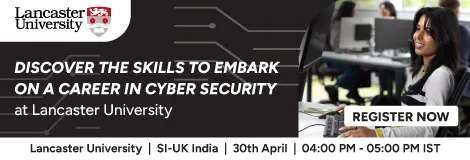If your next step as an MBBS graduate is to work towards a specialisation or to pursue advanced medical study, postgraduate studies in medicine in the UK is an ideal choice that can help you achieve your goals as a medical professional.
Indian MBBS holders have the opportunity to become registered medical professionals in the UK as the UK’s medical regulatory bodies recognise the Indian medical qualification. After successfully completing your primary medical qualification and the clinical training, you have a few processes you can follow to get the UK registration as an Indian MBBS graduate. Before we get into the specifics, let’s explore the study opportunities you can access in the UK as a PG medical student.

Postgraduate Studies in the UK for Indian MBBS Students
Medical colleges and institutions in the UK give you a range of opportunities to gain clinical expertise, specialise in a field of your preference, or conduct individual medical research. Depending on your interests and goals, you have the chance to choose a postgraduate course that can set you on the path towards your ideal career.
- Academia: If you are interested in building a career in academics as an educator or a researcher, you can pursue a postgraduate course in medical education.
- Clinical: If you want to specialise in a branch of medicine as a medical practitioner, you can study for an MD or an MS qualification.
-
- MD or Doctor of Medicine allows you to earn a specialisation in an area of medicine you prefer among many subjects like diabetes, cardiovascular medicine, psychiatric medicine, internal medicine, gastroenterology, dermatology, and more.
-
- MS or Master of Surgery degree qualifies you as a surgeon in a preferred field among many areas like orthopaedic surgery, ophthalmology, urology, gastrointestinal surgery, ENT (Ear, Nose, and Throat), vascular surgery, and more.
- Research: If you are interested in conducting individual research in medicine, you can opt for a research-based PG course in medicine like a PhD or an MSc, leading you towards a career at an educational institute or a research institute.
You can choose to pursue PG medical studies in the UK leading you towards a career of your choice, depending on your interests and goals. Whether you aim to become a medical practitioner, researcher, or an academic, the UK offers you the opportunity to gain an advanced, comprehensive education in medicine. In the next section, we’ll cover why the UK can be the ideal choice for a PG student in medicine.
Why Study PG in the UK after MBBS in India
Postgraduate programmes in medicine in the UK give you the opportunity to gain advanced medical knowledge and to practise as a doctor in the UK after completing your studies. Here’s how a PG in the UK can help boost your career prospects:
- Top-ranking medical schools: The UK is home to many globally top-ranking medical schools based on employability, research, and their international research network.
- Research expertise: The UK’s medical schools focus on medical research that lead to med-tech innovations, pharmaceutical developments, and preventive care methods. As such, medical schools in the UK regularly contribute to real-world applications in the field of medicine, supported by experienced researchers and intensive field work.
- Expert faculty: As a PG medical student, you have the opportunity to learn from and work with experienced educators and researchers with years of expertise in their field.
- Clinical experience: You can receive hands-on clinical training during your PG studies, where you can apply your knowledge and practise medicine in a real-life healthcare setting or contribute to ongoing medical research.
- Wide range of clinical specialisations: The UK offers a range of clinical specialisations for you to choose from depending on your interests and goals. Popular specialisations include internal medicine, gynecology, orthopedics surgery, radiology, general surgery, clinical embryology, nuclear medicine, oncology, and diabetes.
- MCI-recognised qualification: The UK’s medical qualification is recognised by the Medical Council of India (MCI), so your postgraduate degree would be accepted in your home country if you return to India for your medical practice.
Pursuing PG in the UK can help you access up-to-date knowledge, latest medical tech, and intensive clinical training, especially if you wish to practice medicine in the UK as a registered medical practitioner. Let's find out how you can register in the UK as a medical professional so you can start your PG studies in medicine.
How to Study PG in the UK after MBBS in India
Every postgraduate medical student—domestic and international—must register at the General Medical Council (GMC), the medical regulatory authority in the UK, to become a licensed medical professional in the UK. This step is crucial for an Indian MBBS holder aiming to pursue PG medical studies in the UK, since the registration recognises your medical qualification and training, acknowledging you as a medical professional residing and studying in the UK.
There are three ways you can apply to study PG courses in medicine and obtain the GMC registration:
- With PLAB exam
- Without PLAB exam
- Via MRCP/ MRCS exams
Before we go into detail about each pathway you can follow to start PG medical studies in the UK, let’s find out what these exams are:
PLAB Exam
The PLAB test or the Professional and Linguistic Assessment Board exam checks the knowledge and skills of medical professionals who have earned their qualification outside of the UK. To sit for this exam, you have to first set up a GMC Online account, and then apply for the PLAB test.
The PLAB exam is held in two parts:
-
PLAB Part 1: This is a 3-hour written exam with 180 multiple choice questions, held four times a year in February, May, August and November, in the UK and a few overseas locations. You can book an exam venue in India (Bengaluru, Chennai, Hyderabad, Kolkata, Mumbai, New Delhi) through your GMC Online account and receive the venue details via British Council.
-
PLAB Part 2: This is an objective structured clinical exam (OSCE) with 16 simulated scenarios, designed to assess your clinical skills and decision-making abilities. You are required to examine a simulated patient in a mock consultation and respond accordingly, showing your medical knowledge, practical skills, and interpersonal skills. PLAB Part 2 exam is held throughout the year at two GMC Clinical Assessment Centres in Manchester, UK and you can apply for the test once you have your PLAB Part 1 results.
MRCP/ MRCS exams
MRCP and MRCS are postgraduate qualifications awarded by professional bodies of medicine.
- MRCP: Membership of the Royal College of Physicians (MRCP) is awarded by the Royal Colleges of Physicians in the UK and serves as a prerequisite for higher speciality training in internal medicine (Cardiology, neurology, gastroenterology, etc.). The MRCP exam evaluates a candidate's knowledge, clinical skills, and interpersonal skills necessary to practise medicine in the UK. You need 12 months of postgraduate clinical experience to be eligible for the exam.
The MRCP exam consists of three parts:
-
- Part 1: Written exam with multiple-choice questions covering basic medical knowledge.
- Part 2: Written exam focusing on more complex clinical scenarios.
- Part 3: PACES—Practical Assessment of Clinical Examination Skills–-testing candidates’ ability to assess and manage patients in real-life clinical settings.
- MRCS: Membership of the Royal College of Surgeons (MRCS) is awarded by the Royal Colleges of Surgeons in the UK and serves as a requirement for higher surgical training programmes in the UK (most surgical specialties except for obstetrics or ophthalmology). The exam assesses your knowledge and skills necessary to start specialty training in surgery, and can be taken by postgraduate students who have completed the first year of core surgical training.
The MRCS exam is divided into two parts:
-
- Part A: Written multiple-choice questions testing basic science and principles of surgery.
- Part B: Objective Structured Clinical Examination (OSCE) assessing clinical skills, knowledge of anatomy, and patient communication.
The exam you need to take as an Indian postgraduate student depends on your primary medical qualification (MBBS), your clinical training, and your preferred specialisation. If you need support in understanding which exam suits your future goals, SI-UK counsellors are ready to help you—reach out today for a free consultation.
Now that we have an overview of the exams you have to complete to earn the GMC registration, here’s how you can take each pathway towards starting your PG medical studies in the UK.
With PLAB exam
Successfully completing the PLAB exam allows you to apply for GMC registration, and once registered, you are eligible to apply for postgraduate medical speciality training in the UK.
Without PLAB exam
Some universities in the UK offer postgraduate medical programmes in partnership with medical institutions in the UK like NHS Hospitals and the Royal College of Physicians, London. These courses don’t require you to sit for PLAB, and as you start your postgraduate studies, you will be granted the GMC registration.
You are eligible to take this route if you have not attempted the PLAB exam, but if you have taken the PLAB and have not qualified, you may not be eligible to apply.
Via MRCP/ MRCS exams
The MRCP and MRCS exams qualify you for the postgraduate diplomas offered by these professional bodies and if you are selected, you will receive the GMC registration and the licence to practise medicine in the UK during your specialty training.
These pathways can give you access to postgraduate speciality training in medicine in the UK, but before choosing which pathway to follow, you need to ensure you meet the eligibility criteria set out by medical colleges in the UK to start your PG studies. We’ll look at these entry requirements next.
PG in the UK after MBBS in India: Entry requirements
Medical colleges and institutions in the UK have set out mandatory entry requirements for international postgraduate medical students, ensuring all candidates meet the level of medical knowledge, practical skills, and language capacity required from a doctor in speciality training in the UK.
The PG medical course you are applying to may have unique requirements depending on the offering university and the nature of the programme, so it’s best to check the programme-specific requirements before you finalise the list of medical schools you want to apply to. Keep in mind that all postgraduate medical programmes need you to fulfil the below requirements:
-
A GMC-recognised primary medical qualification: An undergraduate qualification in medicine—MBBS
-
Clinical training: Successfully completing the internship programme as the clinical training component of your degree
-
English language proficiency: Acceptable language proficiency indicated by IELTS (6.5 - 7.5 overall score), Occupational English Test (OET - ‘B’), or any other accepted proficiency test
-
Professional experience: Three years of practice as a doctor—this can strengthen your application but unless indicated by your university, professional experience is not a mandatory requirement
PG in the UK after MBBS in India: Duration and Course Content
Postgraduate medicine programmes in the UK are often delivered part-time so you can continue your clinical training or clinical practice alongside your studies. Some PG courses require a full-time commitment, and this schedule depends on the nature of your programme. The course content, structure, and mode of delivery are also unique to each programme, so it’s best to check the programme listing on the university website for specific details. Here’s a general overview of a PG medical course for your reference:
- Duration:
- Full-time: 3 – 5 years
- Part-time: 8 years
- Course content:
- Research programmes: Lectures, individual research supervised by a senior professor, a final thesis, and a viva.
- Specialty training programmes: Lectures, placement training, and individual research
UK universities offer MSc courses in medicine as well—their course content is mostly focused on a single discipline or a field in healthcare, with the programmes typically spanning 2 – 3 years. This MSc Medicine qualification doesn’t allow you to practice medicine or specialise in a clinical area, so if your goal is to advance in your career as a practising doctor, you need to choose a programme focused on medical research and clinical training. Let’s have a look at the PG medicine programmes you can apply for in top UK universities.
PG in the UK after MBBS in India: Universities and Programmes
These universities in the UK are globally recognised for their research excellence, employability of graduates, and academic reputation in medicine. They offer general medicine PG qualifications, specialisations, and research programmes that may align with your career goals—here are a few popular medical programmes in each:
| UK Ranking | University | Programmes |
|---|---|---|
| 1 | University of Cambridge | MD (Doctor of Medicine), Doctor of Veterinary Medicine |
| 2 | University of Oxford | Doctor of Medicine (DM) |
| 3 | University College London | Doctor of Medicine (DM), Medicine MPhil/PhD, Neurosurgery (MRes) |
| 6 | University of Bristol | Cellular and Molecular Medicine MD, Population Health Sciences MD, Translational Health Sciences MD |
| 16 | Lancaster University | Medicine MD |
| 17 | University of Sheffield | Advanced Clinical Practice (General Practice) MMedSci, Advanced Clinical Practice (Neonatal) MMedSci, Advanced Clinical Practice (Paediatrics) MMedSci |
| 23 | University of Exeter | Doctor of Clinical Practice (Research) (DClinPrac(Res)), MD Doctor of Medicine, Healthcare and Medicine |
| 24 | University of Birmingham | Advanced Clinical Practice (MSc/PGDip/PGCert) |
| 33 | University of Warwick | Medicine MD |
| N/A | University of Bath | Doctor of Medicine (MD) |
The medical PG programmes offered at these top-ranking universities can require a significant financial investment—let’s explore the costs you can expect when you are applying to a PG course in the UK.
PG in the UK after MBBS in India: Cost
Postgraduate medical courses in the UK can cost anywhere between £10,300 to £35,000 per year, depending on the nature of your preferred programme. You can access specific information on tuition fees from the university website before you start budgeting for your studies in the UK, as your tuition would take up a significant portion of your financial investment.
Here’s an overview of other costs you need to consider when you are planning to apply to a PG medical course in the UK:
-
Exams: Costs for the exam applicable to you:
-
PLAB Part 1: £268
-
PLAB Part 2: £981 (Consider travel and visa costs to take this exam)
-
MRCP Part 1: £655
-
MRCP Part 2: £655
-
MRCP PACES: £1,278
-
MRCS Part A: £625
-
MRCS Part B OSCE: £1099
-
-
Programme application fee: Around £50 (Some universities don’t charge this fee for medical programmes)
-
Visa application fee: £490 (Documents you need for your visa)
-
Health surcharge fee: £776 per year
You can get funding support to cover these costs with bursaries, student loans, and scholarships. Your preferred university may offer funding support for international students, so make sure to check the fees section in the programme listing to find scholarships you may be eligible for. You can also check our listing for more scholarships you can consider applying for, to support your studies in the UK.
The application requirements and the process for postgraduate medicine courses in the UK can vary significantly depending on your preferred specialisation and the pathway you take to register in the UK as a medical professional. Although the application and admission process can seem challenging, a PG in medicine from the UK is a valuable qualification that can set you up for a rewarding career as a well-rounded medical professional. If you are thinking of applying for PG in the UK after MBBS in India, counsellors at SI-UK can help with our tailored service for medicine applicants.
FAQs
Can I do my PG in the UK after MBBS in India?
Yes. You can apply to register as a doctor in the UK and once you are registered, you can follow a PG course.
Is the Indian MBBS degree valid in the UK?
Yes, the Indian MBBS degree is accepted in the UK.
What are the fees for PG in the UK after MBBS in India?
Tuition fees for PG medical courses in the UK after MBBS in India can cost anywhere between £10,300 to £35,000 per year.
How many years does it take to complete a medical PG in the UK?
Three – eight years. The duration of your PG medical course depends on the nature of the programme and whether you are studying full-time or part-time.
Can I do PG in the UK without PLAB?
Yes, there are postgraduate diplomas offered by professional bodies like MRCP and MRCS, and if you are selected, you can pursue a PG in the UK without PLAB.




 I sincerely thank SI-UK for getting me accepted to UCL. The MSc in Urban Development and Planning is extremely competitive, but the right guidance provided by SI-UK made my dream of studying at University College London a reality. The services were exceptional from beginning to end.
I sincerely thank SI-UK for getting me accepted to UCL. The MSc in Urban Development and Planning is extremely competitive, but the right guidance provided by SI-UK made my dream of studying at University College London a reality. The services were exceptional from beginning to end. 

